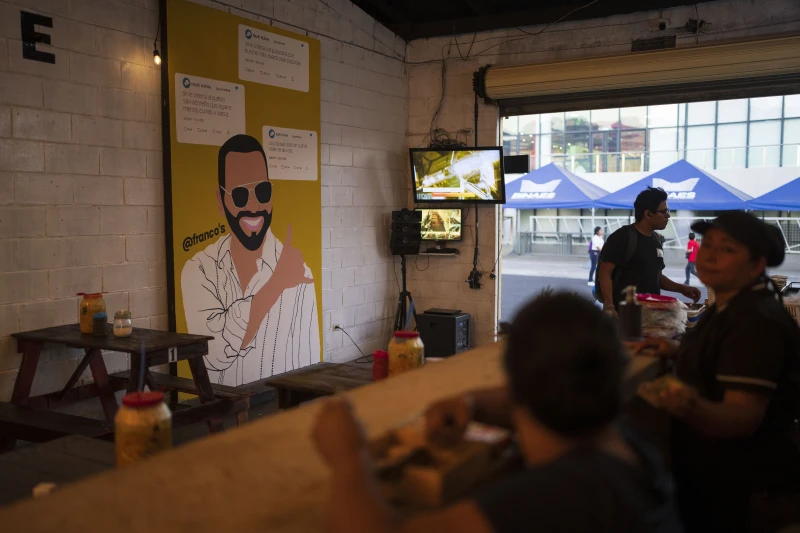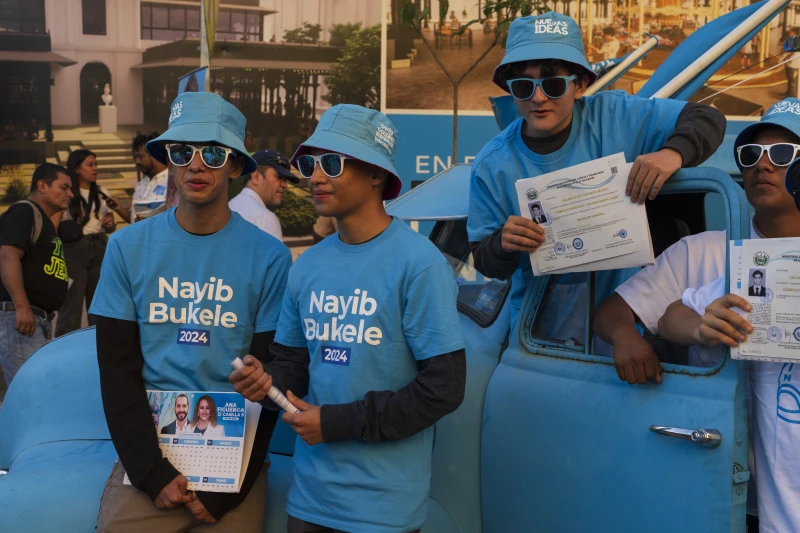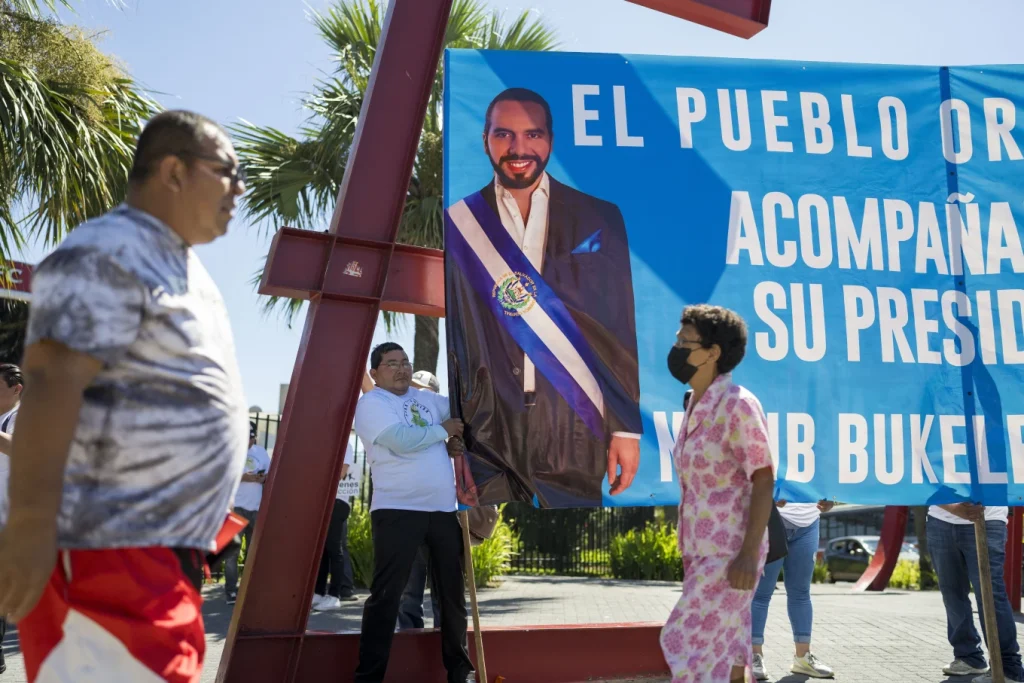In the realm of Latin American politics, few figures have garnered as much attention and controversy as Nayib Bukele, the President of El Salvador.
His tenure has been marked by both fervent support and vehement opposition, with his policies and actions eliciting diverse reactions from the public and international community.
Bukele’s rise to power, his approach to governance, and the implications of his leadership have sparked debates on democracy, human rights, and the consolidation of power.
This essay seeks to provide a comprehensive analysis of Bukele’s presidency, examining the complexities of his rule and its impact on El Salvador and beyond.
Nayib Bukele’s presidency has been characterized by a polarizing public perception, with supporters lauding his efforts to combat gang violence and bring about tangible change, while critics condemn his methods as authoritarian and detrimental to human rights.
The dichotomy in public opinion reflects the multifaceted nature of Bukele’s leadership, which has elicited both admiration and concern on a global scale.
The president’s self-proclaimed moniker as the “world’s coolest dictator” underscores his unconventional approach to governance, blending charisma, social media savvy, and a hardline stance against criminal elements.

Bukele’s popularity, evident in high approval ratings and electoral support, underscores the complexities of his appeal to a significant portion of the Salvadorian populace.
However, this popularity has also raised concerns about the erosion of democratic principles and the concentration of power in the hands of a single leader.
Bukele’s presidency has been marked by bold and controversial initiatives, particularly in addressing the pervasive issue of gang violence.
The implementation of stringent measures, including mass incarcerations and a state of emergency, has drawn criticism from human rights organizations and international observers.
Reports of systemic human rights abuses, arbitrary detentions, and allegations of torture have cast a shadow over Bukele’s administration, prompting scrutiny and condemnation from advocacy groups.
The president’s unorthodox methods and disregard for traditional political norms have further fueled debates on the nature of his leadership.
His circumvention of constitutional provisions to secure a potential second term has raised fundamental questions about the rule of law and the preservation of democratic institutions.
The consolidation of power and the curtailment of dissent have led to apprehensions about the trajectory of El Salvador’s political landscape under Bukele’s rule.
The impact of Bukele’s presidency extends beyond the borders of El Salvador, resonating in the broader context of Latin American politics.
His ascendancy to power and the subsequent consolidation of authority have reverberated in neighboring countries facing similar security challenges.
The emulation of Bukele’s approach by leaders in the region has raised alarms among human rights advocates and democratic watchdogs, signaling a potential shift towards authoritarian populism in the broader Latin American context.
The international community’s response to Bukele’s leadership has been characterized by a delicate balance between acknowledging his popular appeal and expressing reservations about the erosion of democratic norms.
The convergence of celebrity endorsements, high-profile events, and controversial policies has positioned Bukele as a figure of global significance, prompting discussions on the implications of his leadership for the broader discourse on governance, human rights, and the rule of law.
Nayib Bukele’s presidency in El Salvador encapsulates a complex and contentious chapter in Latin American politics.
His rise to prominence, unorthodox leadership style, and contested policies have engendered fervent debates and raised critical questions about the intersection of democracy, human rights, and the consolidation of power.
As Bukele’s influence extends beyond his nation’s borders, the implications of his rule resonate in the regional and global arenas, shaping conversations on the future of governance and the preservation of democratic values.
The legacy of Nayib Bukele remains a subject of ongoing scrutiny, reflecting the intricate interplay of public sentiment, political dynamics, and international ramifications.
As El Salvador and the broader Latin American region navigate the complexities of Bukele’s presidency, the enduring impact of his leadership will continue to shape narratives on governance, democracy, and the pursuit of social progress.
The denial of the suspension of rights by the government in El Salvador, as stated by Ulloa, is a contentious issue.
While the crackdown on crime has led to a significant reduction in the country’s homicide rate, it has also raised concerns about the potential erosion of democratic values.
President Bukele’s approach has garnered widespread support among many Salvadorans, who view him as a figure capable of delivering much-needed security, a task that previous administrations struggled with.

This sentiment is evident in the adoration expressed by individuals like Paola Ventura, whose workplace is adorned with the president’s imagery, reflecting the widespread popularity of Bukele.
However, this fervent support has also been met with fear and reluctance to openly discuss the political landscape due to the mass detentions that have taken place.
Bukele’s emphasis on the gang crackdown has become a central theme of his political campaign, with warnings of potential risks should his party not secure victory in the election.
Despite his growing popularity, concerns have been raised about the concentration of power within Bukele’s administration, with critics highlighting the potential long-term risks to democratic principles.
The president’s actions, such as the military intervention in the Legislative Assembly and the subsequent purging of the constitutional court, have fueled these concerns.
While Bukele’s approach has drawn attention from leaders in neighboring countries facing similar security challenges, there are also voices within El Salvador expressing reservations about the president’s priorities, particularly in addressing core issues such as poverty and economic stagnation.

Despite efforts to project prosperity, including the adoption of Bitcoin as an official currency and hosting international events, economic growth has remained stagnant, and food insecurity has affected a significant portion of the population.
This dichotomy underscores the complex and multifaceted nature of Bukele’s presidency, reflecting both fervent support and apprehension within the country.
